When a young Spanish director began making a film about a mad family of poets “during the waning days of the Franco dictatorship,” Aaron Shulman writes in the current issue of The Believer, it was intended to be a short documentary. Titled “El Desencanto” (“The Disenchanted”), the film “ended up spilling into a ninety-one minute feature” and, he reports, has since become “a cult classic in Spain.”
Shulman is now writing a collective biography of the family, the Paneros, to be published by the HarperCollins imprint Ecco Books, in 2018. Its cast of characters is nothing less than stunning. The family patriarch was the poet laureate of the Franco regime, Leopoldo Panero, who, as noted by the publisher, betrayed the ideals of his friend Federico García Lorca during the Spanish Civil War (and later battled with the Chilean poet and Nobel laureate Pablo Neruda). The matriarch was Felicidad (Blanc) Panero, an actress and writer (and obsessive stage manager of the family legacy). Their three sons were also poets — most significantly the subversive Leopoldo María Panero, who would spend the 1980s living in a mental institution and whose poetry readings drew mobs of fans. Roberto Bolaño considered him a genius, and in the last interview he gave before his death, in 2003, called him “one of the three best living poets in Spain.”
“No one’s ever told their story in English, and only in fragments in Spanish,” Shulman, a freelance journalist and former Fulbright scholar, messaged me in an email. “So I feel really lucky to be the one to tell the whole thing for the first time.” Or as he writes in The Believer, “the Paneros are the stuff of fiction, which is the best type of reality: the kind that humbles the imagination of novelists but doesn’t deter them from trying.”
When “El Desencanto” was released, in 1976, a year after Franco’s death, some “critics roundly dismissed it,” Shulman notes, but others saw it as “an autopsy” of the Franco period. He describes the film as
a black-and-white throwback to a past era, a badge of cool for the literary set, and an anecdotal curio of Spanish cultural history recalled by older generations. It is a fascinating historical document but above all a singular work of art, both purposeful and accidental. This is largely due to the Paneros themselves, as [the director Jaime] Chávarri himself will admit. They were a singular work of art … the whole family.
One of Shulman’s favorite scenes shows the youngest son, Michi, and the eldest, Juan Luis, at a garden table, on a chilly autumn day, arguing “about which better defines the current state of the Paneros: their father’s death or their brother Leopoldo María’s life.”
Michi is all boyish good looks and floppy curls, wearing a dark coat with an upturned collar, bristling with the confidence that being twenty-three is all about. Juan Luis is balding and vaguely trollish, aged beyond his thirty-two years. He leans back into his chair with a weary seniority reinforced by the coat draped regally over his shoulders.
Have a look:
“What we come to understand more than anything else is that the Paneros are great actors,” Shulman writes.
Not that they are telling lies (though surely they are), but that they know how to work the eye of the camera, to hold the observer’s attention, to bring a scene to life — in short, they have mastered a skillful, seamless performance of being the Paneros.
But it is the “mesmerizing and harrowing” poetry of Leopoldo María, who expressed a certain displeasure with the film but who makes a stellar appearance in it nevertheless, that provides the greatest fascination for Shulman. The poems “feel at times … like an encounter between Rimbaud and William Burroughs,” he notes. Leopoldo María is
like a beat poet with a European air taking the reader on a transgressive journey through a blazing dreamscape of doom. His work is thanatotic and cadaver-obsessed, pansexual and preoccupied with anuses, toads, and semen. … Indeed, his sensibility falls far, far afield from that of his father … And yet there are ribbons of beauty through his work — “the ridiculous porcelain of Time” stuck with me — as well as an omnivorous and almost compulsive allusiveness that takes in everything from Mallarmé to Speedy Gonzalez.
Not incidentally, Bolaño’s fascination with Leopoldo María, who died in 2014, was mixed with fear. He recalled, in an anecdote cited by Shulman, that Leopoldo María’s fans were “freaks who seemed to have just escaped from a mental asylum. … The problem is that some of them didn’t look only like madmen. They looked like killers.” Bolaño was afraid one would shoot Panero, just for bragging rights about killing him, during a series of readings in Pamplona — and that he, Bolaño, would be shot dead, too, as an added attraction. Had that happened, you can be sure the English-speaking world would have discovered the wild tale of the Panero family in all its weird glory long before now.

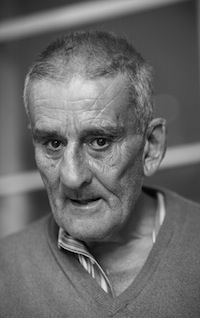
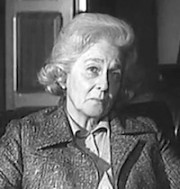
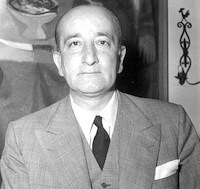
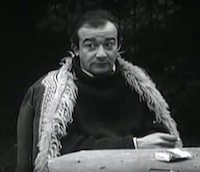
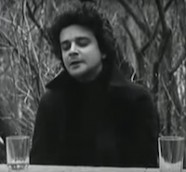
Thanks for posting this, Jan. I had an opportunity to read Aaron’s book proposal before it went around to agents, and I can say with confidence that it’s going to be a great book. He’s got a cool, confident style, and a real sure sense of his subject.